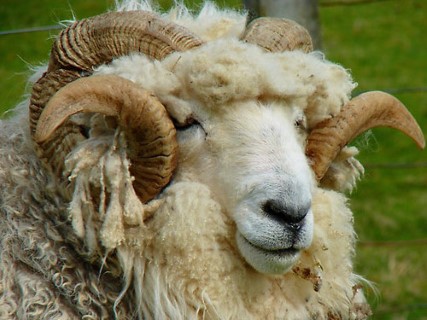Drysdale sheep are a dual-purpose breed prized for their unique wool, which finds its primary use in carpet manufacturing. Renowned for their distinctive wool quality, Drysdales carry the dominant Nd gene, a genetic mutation initially observed in the Romney breed. This genetic characteristic results in the production of a specific type of fiber known as halo-hairs, which are coarse and very hairy.
The wool of the Drysdale sheep is distinguished by its lack of crimp and high medullation, with a fiber diameter measuring approximately 40 microns. This wool is highly regarded for its exceptional whiteness and versatility in dyeing, making it a preferred choice for various textile applications.
Drysdale sheep are well-suited to a wide range of environments throughout New Zealand, where they are commonly raised. Their robust nature allows them to thrive in diverse climatic conditions. Typically, Drysdales are sheared twice a year to harvest their valuable wool, ensuring optimal wool production and quality. Their wool, prized for its unique characteristics and versatility, continues to be a valuable commodity in the textile industry, particularly in carpet manufacturing.
